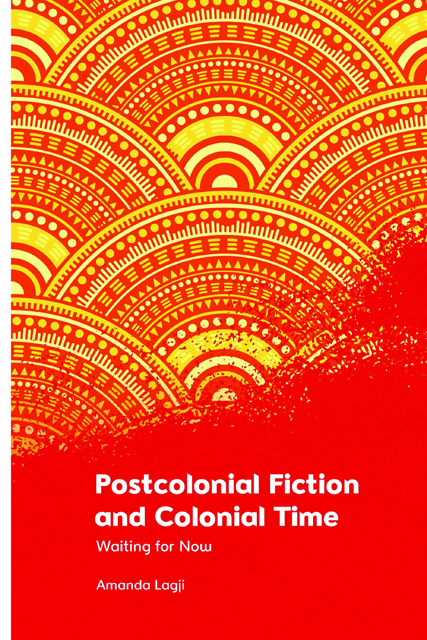Book contents
- Frontmatter
- Contents
- Acknowledgements
- Introduction
- 1 Waiting at the Heart of Colonial Time Regimes
- 2 Projects and Promissory Notes: The Waiting Rooms of V. S. Naipaul and Nadine Gordimer
- 3 Marooned Time: Disruptive Waiting and Idleness
- 4 Gendered Timescapes of Waiting: Patience and Urgency in Novels of Disillusionment
- 5 ‘Strategic Waiting’ and Reconciliation in the Aftermath of Conflict
- Conclusion
- Bibliography
- Index
2 - Projects and Promissory Notes: The Waiting Rooms of V. S. Naipaul and Nadine Gordimer
Published online by Cambridge University Press: 25 April 2023
- Frontmatter
- Contents
- Acknowledgements
- Introduction
- 1 Waiting at the Heart of Colonial Time Regimes
- 2 Projects and Promissory Notes: The Waiting Rooms of V. S. Naipaul and Nadine Gordimer
- 3 Marooned Time: Disruptive Waiting and Idleness
- 4 Gendered Timescapes of Waiting: Patience and Urgency in Novels of Disillusionment
- 5 ‘Strategic Waiting’ and Reconciliation in the Aftermath of Conflict
- Conclusion
- Bibliography
- Index
Summary
As a response to the temporizing and the various conditionalities with which empires typically opposed the demand for national freedom, it is ironic that newly independent nations, such as India, should themselves have made the assertion of freedom conditional on achievements which could at best only be prospective … [T]he terms in which new states conceived of freedom, once independence was secured, made its affirmation a most capacious project and a promissory note that was issued not just to all members of the nation itself, but to the world at large … The nation and its freedom, following independence, was a project for the future.
Uday Mehta, ‘Indian Constitutionalism: The Articulation of a Political Vision’ (2007)After signing his enlistment papers with the Company, Marlow in Heart of Darkness exits the waiting room with a sense of ominous foreboding –at least that is how he recollects the event as part of the larger narrative of his Congo journey. From that point forward, the narrative proceeds inexorably towards Marlow’s encounter with Kurtz in the interior of the ‘Dark Continent’, where time seems to move backward to the ‘prehistoric ages’. It is not just the African environment that contributes to Marlow’s impression, but also his appraisal of the Africans themselves, which Conrad marks in Marlow’s speech parenthetically:
(I don’t think a single one of them had any clear idea of time, as we at the end of countless ages have. They still belonged to the beginnings of time –had no inherited experience to teach them, as it were).
While Conrad, through Marlow and the frame narrator, does not draw out the implications of this timelessness with respect to waiting, throughout Heart of Darkness, Marlow’s anxious waiting contrasts sharply with his African others. Without a ‘clear idea of time’, without a sense of the present retreating into the past, and without a sense of progression into the future, the Africans appear not to experience waiting the way that Marlow does. As Chinua Achebe pointed out in 1976, this depiction ‘was and is the dominant image of Africa in the Western imagination and Conrad merely brought the peculiar gifts of his own mind to bear on it’.
- Type
- Chapter
- Information
- Postcolonial Fiction and Colonial TimeWaiting for Now, pp. 58 - 90Publisher: Edinburgh University PressPrint publication year: 2022



